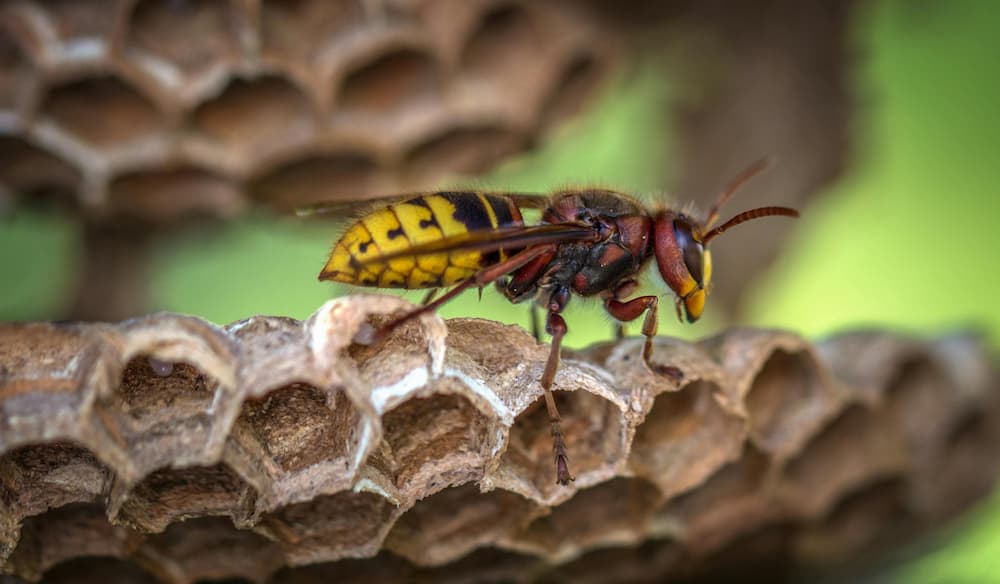
Insect Bites

Our guide has been authored by qualified veterinarians, but should not be taken as substitute for medical advice or professional veterinary consultation. If your pet displays any unusual symptoms, we strongly advise seeking guidance from a veterinarian
Understanding Insect Bites in dogs and cats
Insect bites are a common issue in dogs and cats. Bees, wasps, mosquitoes, ants, and, of course, fleas (yes, fleas are insects!) are the main suspects. The bites usually cause discomfort and local reactions but can also lead to more severe systemic issues.
Insect Bites's Causes: Uncovering Triggers
Dogs and cats are at higher risk of being bitten by insects for several reasons:
- They spend more time outdoors and stick their heads into bushes and nests.
- Their thick fur and higher body temperature make them particularly attractive to insects.
- They are hunters by nature and often try to catch the very creatures that end up stinging or biting them.
 Recognizing Insect Bites: Signs and Symptoms
Recognizing Insect Bites: Signs and Symptoms
- Redness around the bite area: Be aware, though, that this sign is often masked by fur.
- Licking, biting, or scratching in the region of the bite: Be aware that an allergic reaction can sometimes lead to intense itching in other parts of the body as well. Such cases include flea allergy in dogs and cats that often results in self-inflicted wounds on the lower back (hot spots) or sensitivity to mosquito bites in cats, which may cause self-injury on the face.
- Swelling: Some insect bites cause local or regional swelling. Dogs who swallow bees or wasps may experience significant facial swelling.
- Eye damage: Fire ant venom can cause a reaction known as “Florida Spots”, which causes a burning sensation and cloudy corneal scarring.
- Anaphylactic shock: This is relatively rare, but anaphylactic reactions can be life-threatening. They include a sudden drop in blood pressure and require immediate treatment. The pet will appear very weak and may collapse. Dogs may vomit and cats may have trouble breathing.
 Insect Bites Diagnosis: How it's Identified
Insect Bites Diagnosis: How it's Identified
The diagnosis is typically based on the above signs during the physical examination or identification of insects on the body.
 Treating Insect Bites: Options and Approaches
Treating Insect Bites: Options and Approaches
Prevention:
- Regular, effective preventative treatments.
- Preventing the animal’s entry into bushes and hidden areas.
- Keeping cats indoors.
Treatment:
- Removing the stinger when accessible.
- Topical therapy with soothing creams.
- Eye drops or ointments in cases of fire ant bites.
- Antihistamines, administered by injection or orally, to reduce itching and swelling.
- Steroids: Administered as creams, injections, or orally to treat severe cases of allergic skin reactions or significant swelling.
- Pain relief to reduce pain and discomfort.
- In rare cases of severe anaphylactic reactions, emergency treatment includes an adrenaline injection, fluids, and sometimes additional intravenous medications.
Insect Bites: Surprising Facts

FAD (Flea Allergy Dermatitis) is by far the most common skin condition in dogs and cats. Flea saliva contains ~15 allergens. In addition to discomfort, fleas can transmit pathogens like Mycoplasma, which leads to feline infectious anemia. In humans, fleas were responsible for spreading the Black Death, which wiped out nearly half of Europe’s population in the Middle Ages.

“Florida Spots”, which appear in the eyes and are caused by fire ants, were first discovered at the University of Florida in the 1980s, hence their name.

Honeybees will sting only as a last resort and, unfortunately, die as a result. The stinger left in the skin can continue to release venom for up to 3 minutes. Wasps and hornets are more aggressive, don’t die from stinging, and can sting multiple times.
 Vet's Tip: Dealing with Insect Bites
Vet's Tip: Dealing with Insect Bites
Due to global warming, dogs and cats are now exposed to insect bites year-round, so practicing routine preventative treatments is crucial. When exterminating fire ants, mosquitoes, fleas, or wasps, it’s essential to approach a certified professional and use non-toxic substances that are safe for pets. As a precaution, it’s best to avoid exposing pets to these substances for at least 24 hours.




Price Tag

Latest in Research and Treatments
Mosquito bites cause skin irritation but can also lead to more severe issues. In the United States, mosquitoes transmit the dangerous heartworm (Dirofilaria), one of the leading causes of death in dogs. Mosquitoes remain the deadliest animals globally, as malaria parasites kill over half a million people every year.
Recent studies have found that modern flea and tick treatments are also effective against mosquito bites. These findings offer hope for future prevention in pets and perhaps even humans.
dogs and cats breeds Prone to Insect Bites
Did you know?
Enrolling in Animalia Pet Insurance
while your pet is healthy is a wise decision.
Waiting until a disease develops means it won't be covered.







